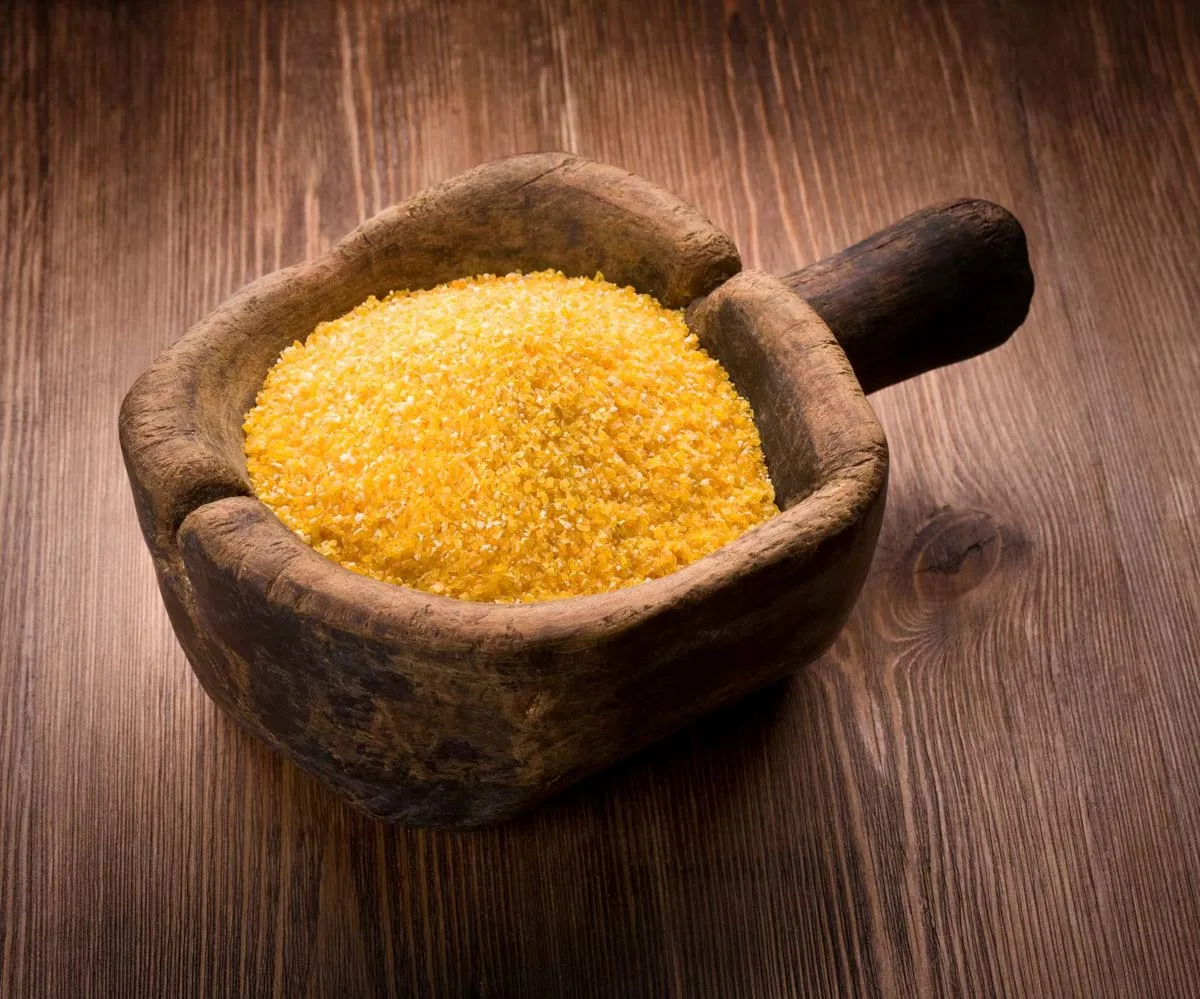Can my dog eat grits? Maybe. While it’s certainly not the first food dog owners probably think to share with their pet, nothing about grits is inherently toxic to them. There are a few considerations, however, if you plan to feed your dog grits.

What are grits?
Grits are made from ground corn. Typically from the less sweet starchy varieties, not the kind you’d find at the market on the cob. They’re bland in flavor and often combined with fats (usually cheese and butter) to make them more palatable to humans.
To make grits, water is boiled and the grits are added and stirred until thickened and smooth.
They’re high in carbohydrates and low in protein so grits don’t offer much other than empty calories to your dog from a nutritional standpoint.
Is it safe for dogs to eat grits?
Since grits are a single ingredient product made from corn, there’s no harm in feeding them to your dog. Corn is used as filler (carbohydrates) in many commercially produced dog foods. That said, it’s not a food your dog needs in his diet. It offers little to no protein or fat and simply acts as an energy source.
If your dog suffers from a corn allergy, grits are not a safe choice.
Because grits are often sold as processed foods, the potential for including added ingredients is something to be aware of. Any added spices, fillers, chemical preservatives, etc. need to be minded as they can be dangerous to a dog’s health.
It’s also prudent to avoid typical grits toppings such as cheese, butter, scallions and sugar. Some of these are outright toxic to a dog (scallions) while others may cause gastrointestinal upset.
A small amount of plain grits, however, is safe for most dogs to eat.

Are there any health benefits in feeding a dog grits?
While minimal, there are a few beneficial attributes to traditionally sourced grits.
Like oatmeal, grits come in different forms. There are traditional stone-ground grits — the least processed, all the way to quick-cooking grits — the most processed. As you might have guessed, the less processed, the better both for humans and dogs.
Stone-ground grits do provide some nutritional benefit such as low to moderate levels of iron, folate and B vitamins. They also contain antioxidants like most plant foods which can help fight free radicals in the body and tamper oxidative stress.
Two of these antioxidants, lutein and zeaxanthin are supportive for good eye health protecting against cataracts and age-related macular degeneration which can be helpful as your dog ages.
Health risks of feeding grits to dogs
Because corn is an unnecessary food in a dog’s diet, there are a few potential risks to be tuned into if you choose to share grits with your pup.
- Obesity — Because grits are primarily composed of carbohydrates, it’s easy to overfeed this food to your dog. According to VCA animal hospital, over 50% of dogs are obese. Excessive consumption of carbohydrates can lead to quick weight gain in canines. Once obese, complications such as pancreatitis and diabetes can arise.
- Digestive upset — Corn doesn’t sit well with all dogs. Like humans, some dogs will be sensitive to corn or have an actual allergy to it. Gastrointestinal symptoms include diarrhea, vomiting, flatulence and a lack of appetite. Additives in some packaged grits can also be the cause of these issues.

Should I feed my dog grits?
When it comes down to it, the only type of grits you should ever feed your dog are the plain kind. Ground cornmeal made with water and not seasoned with anything else is a safe food to share with your dog on occasion. It should never consist of more than 10% of their diet and only be added as a sporadic treat.
It’s important to understand that grits don’t add much nutritional benefit for your dog and you’d be much better off making a homemade treat with more wholesome ingredients or trying something like our eggplant jerky recipe.

